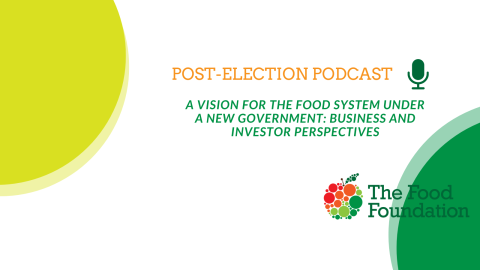08 October 2024
What did we learn from party conference season?
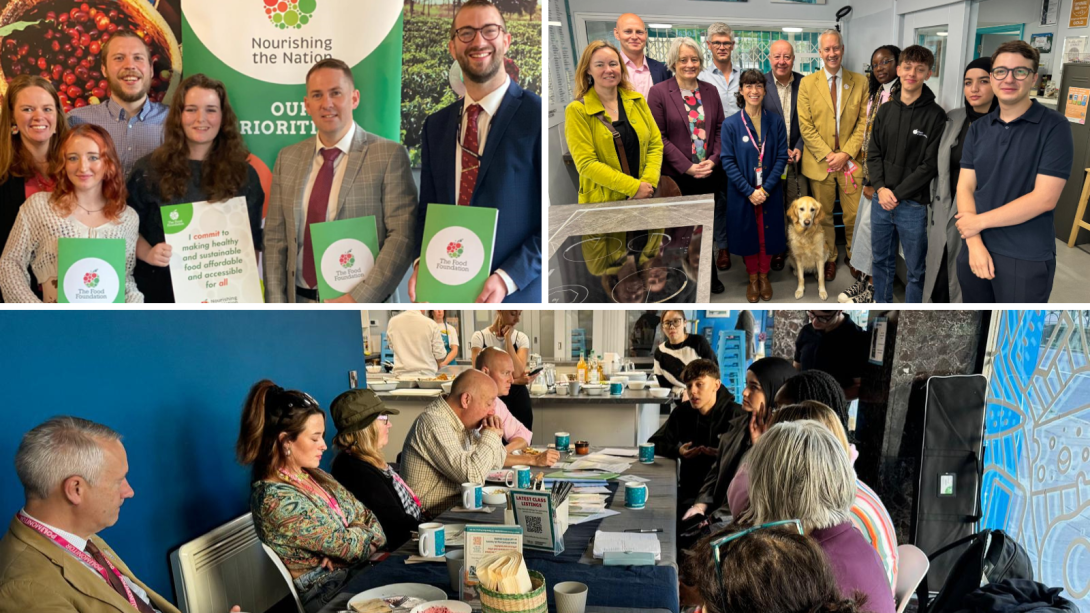
What have we learned from party conference season? By Food Foundation Public Affairs Lead Joss MacDonald
The Food Foundation was present at the three biggest party conferences that have taken place in the last three weeks: the Liberal Democrats, Labour, and the Conservatives.
The Liberal Democrats:
The Liberal Democrats now have 72 MPs in the House of Commons, including many rural seats in the South of England.
Importantly for The Food Foundation, both the chairs of the Environment, Food and Rural Affairs Select Committee and the Health and Social Care Select Committee are Liberal Democrats, namely Alistair Carmichael and Layla Moran respectively.
This makes them significantly more important players in this parliament than they have been previously.
That is why The Food Foundation hosted a breakfast at the Liberal Democrat conference to discuss the topic of Free School Meals.
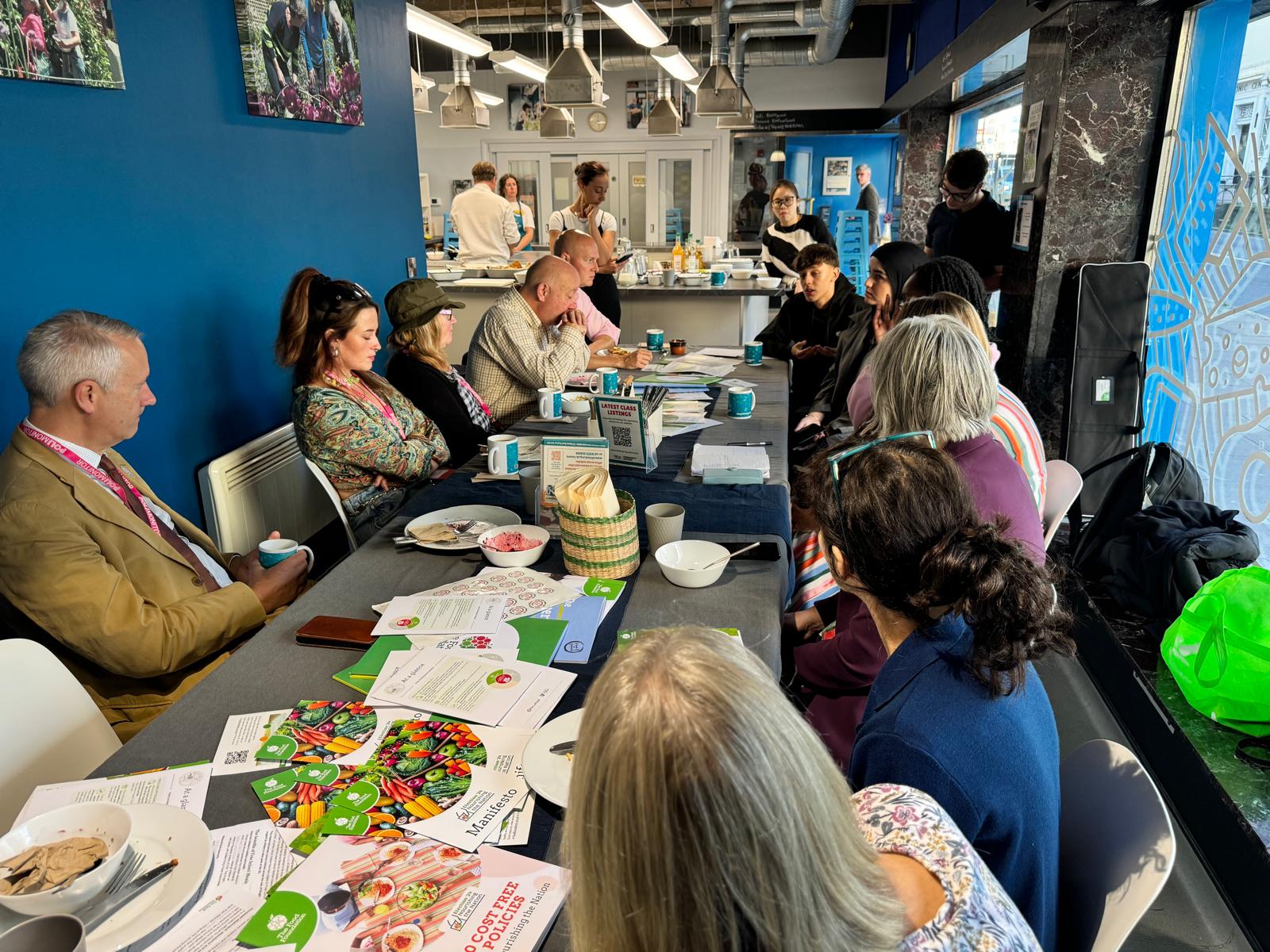
We were joined by seven new Liberal Democrat MPs who were elected on a platform to expand Free School Meals in English primary schools, with the long-term aim of universal provision, as exists in Wales and London.
It was clear that there is a lot of enthusiasm from the new Liberal Democrat intake for this topic, which has been a longstanding policy for them.
We will therefore be working with interested Liberal Democrat MPs on pressing the government to expand free school meals as a means to give all children the best possible start in life.
The Conservatives:
The Conservative Conference, the first for 14 years with them as an opposition party, was totally dominated by the ongoing contest to decide the party’s next leader. This left little room for any serious policy discussion, outside of some key interests of the Tory rank and file.
The panel that The Food Foundation contributed to as part of the Recipe for Change Coalition along with Diabetes UK did however feature developments on account of the presence of Dr Ben Spencer MP, the Shadow Minister for Public Health, Prevention and Mental Health, being on the panel discussing how to improve children’s dietary health.
Dr Spencer was keen to highlight the strong link between poverty and obesity – he made precisely the same point that the Minister made at Labour conference: if you map areas of high obesity and high levels of deprivation in the UK, they almost perfectly overlay. It was positive to hear this fact clearly acknowledged and articulated from a member of the Conservative frontbench.
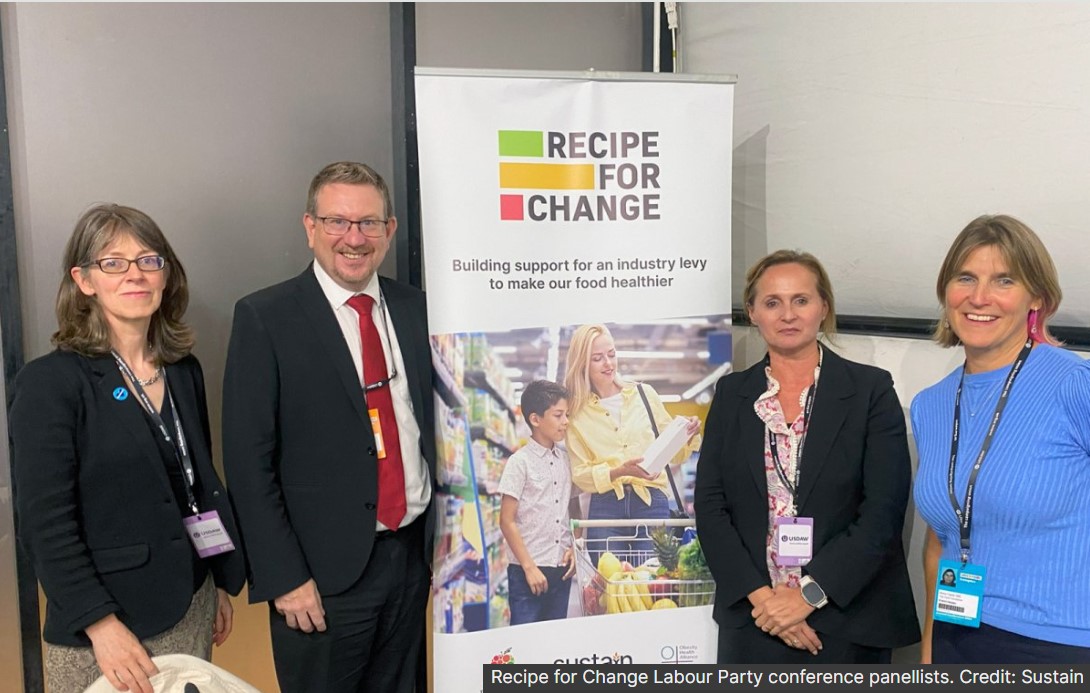
The Conservative Environment Network, which always has a large presence at Conservative Party Conference, ran multiple fringe events on the extent to which their party should embrace or reject a wide range of environmental issues.
It is clear that while full throttle denialism of global heating is a fringe view in the Conservative Party, so is ambition for global leadership on the issue.
The party is currently fixated on its need to champion conservative values as a means to getting back to government. The party members at least, are not convinced, that this entails moves to improve the sustainability of our food and farming system, or our economy at large.
Labour:
This was the first Labour conference since 2009 with the party in government. However, following a week of negative press for the Prime Minister, the mood was muted – the sense of excited anticipation that was present at their 2023 Conference had totally dissipated.
Unlike last year’s Labour Conference, constituency and trade union delegates did not debate whether every school child should be provided with a hot nutritious meal at lunchtime. The heated debate was instead reserved for the Government’s proposal to end universal Winter Fuel Payments for those over 66.
However, the issue still came up in multiple different fringe events at the conference, not least that hosted by the National Education Union as part of their campaign for Free School Meals For All, and the fringe event we helped run as part of the School Food Review with support from Impact on Urban Health.
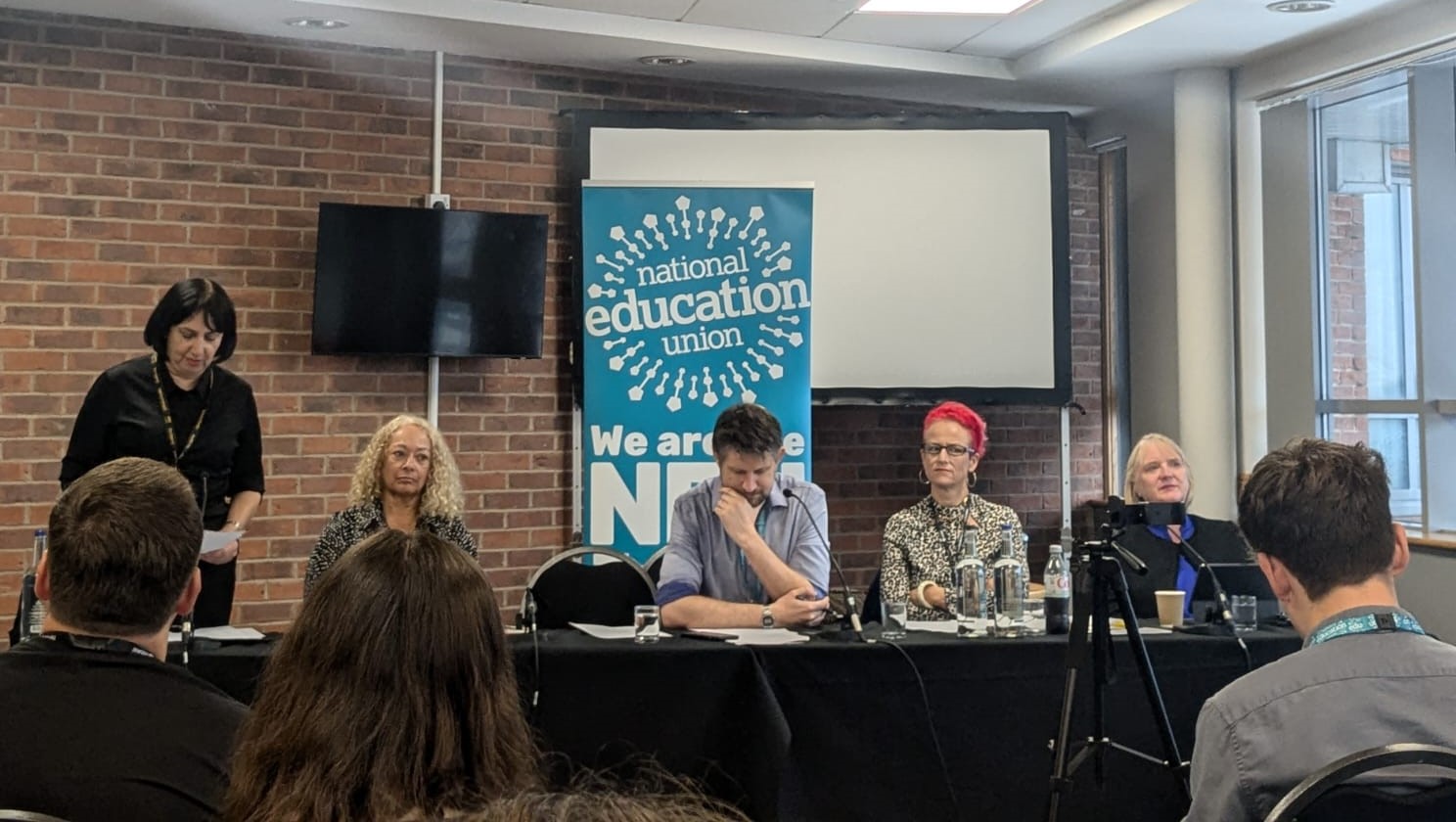
The latter involved a broad discussion on school food, featuring the newly elected Labour Mayor of York and North Yorkshire, David Skaith, who was clearly keen on using the procurement of school food as a way to support local North Yorkshire farmers.
Alongside this, we also hosted a private event attended by two new Labour MPs, Will Stone and Sam Rusworth - both spoke about their determination to create a school food system that delivers the best possible opportunities for young people.
We were also involved in running an event as part of the Recipe for Change Coalition with Diabetes UK on how to improve children’s dietary health.
For this fringe event, we were joined by the Minister for Prevention and Public Health, Andrew Gwynne. The Minister clearly understood the importance of prevention, which has featured significantly in lines coming out of the Department for Health since the election.
He acknowledged that although the regulations on junk food marketing and changes to the National Planning Policy Framework were a good start in breaking the junk food cycle, more would need to be done if we are to improve the dietary health of the nation.
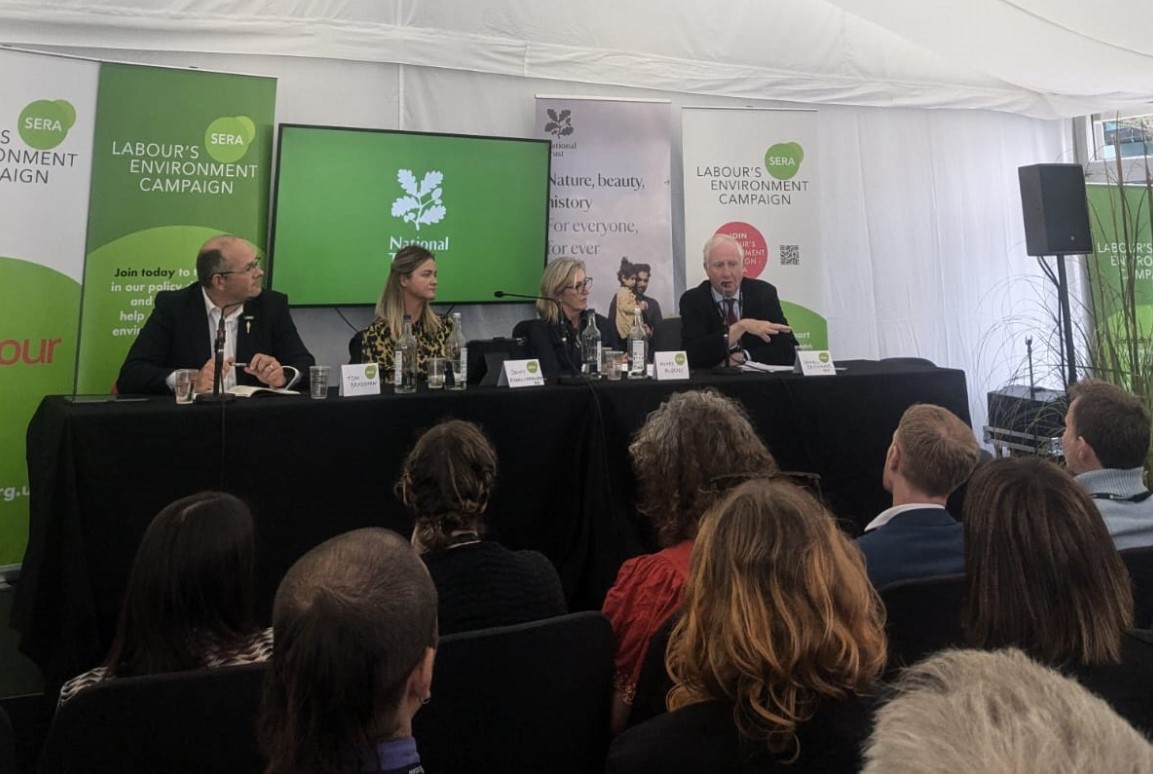
Separately, the Food Security Minister, Daniel Zeichner, hinted at possible progress on key issues for the food system.
Although he refused to be drawn on specifics, he told an audience at a fringe event jointly hosted by the National Trust and the Socialist Environmental and Resources Association (SERA), that the government is looking again at the National Food Strategy.
If the Government were to revive, relaunch or reconfigure the Strategy, it would be a major step forward for the food system in the UK, allowing the Government to boost its efforts on cross-departmental working and finally get food to be recognised as an important governmental priority in its own right.
The Minister also spoke of the Government’s interest in a horticulture strategy, which is a clear ask in The Food Foundation’s Nourishing the Nation manifesto.
The horticulture sector in England is currently shrinking, when it actually needs to be expanding. As well as increasing our food security, a strategy would also support British farmers and our rural economy, help us reach Net Zero targets, and increase the supply of fruit and vegetables which is essential for improvements in diet.
As the Minister noted, a strategy is something which has been supported by the House of Lords Horticulture Committee last year, as well as the National Food Strategy and the National Farmers’ Union. We look forward to working with the DEFRA as well as other government departments to help bring both of these essential strategies into fruition.





